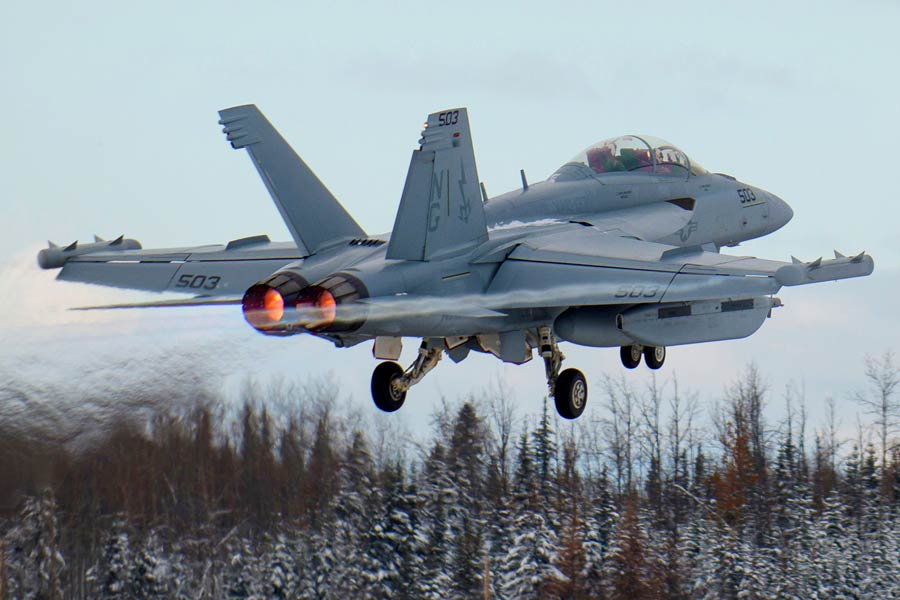Olympic National Forest officials have largely dismissed objections filed by more than 100 people opposed to a Navy plan to conduct electronic warfare drills on the forest.
In a letter dated March 29, forest supervisor Reta Laford wrote that the Forest Service’s draft decision to allow the war games “is consistent with all policy, law, direction, and supporting evidence.”
Officials from the Navy’s Whidbey Island air base are seeking a special use permit from the Forest Service to conduct the training exercises on Washington’s Olympic Peninsula. They want to station three “mobile transmitters” at a dozen locations on the national forest. The vehicles would produce electromagnetic signals mimicking hostile communications. Navy jets would try to detect and intercept those transmissions.
The Navy’s plan calls for conducting the exercises on the Olympic National Forest for up to 260 days per year.
The Forest Service has received thousands of comments about the proposal. But federal regulations dictate that only those who file comments during designated commenting periods are eligible to lodge formal objections.
Those who filed formal objections to the plan raised a host of concerns, ranging from the effects of the transmissions on the health of humans and wildlife to the impact of the exercises on the region’s tourism industry.
FSEEE Executive Director Andy Stahl was among those who filed a formal objection. FSEEE contends that the Forest Service is not authorized to issue the Navy a special use permit for the training exercises because Congress has never passed legislation that grants such authority.
In her letter, Laford identified a handful of “clarifications” that the Forest Service will make before issuing a final decision. She provided no timeline for when the final decision will be issued.


